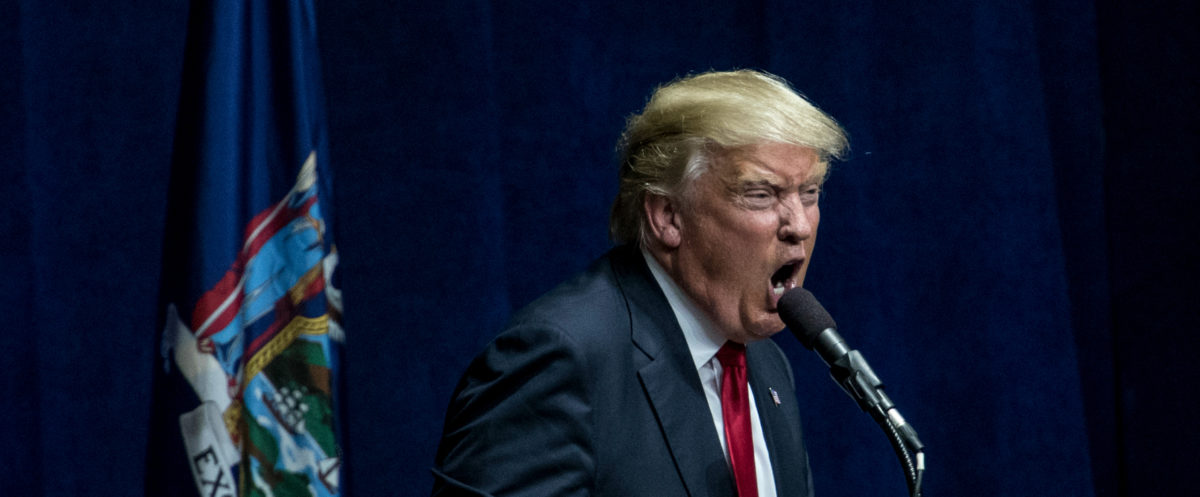One of the truly unsettling paradigm shifts here in America is anticipating a diabolical world in which redress will be responded to with retaliation. Can you call the police if you know that your name will be added to a list if you aren’t white, male, and fascist? Can you settle a dispute with your neighbor if there is even the slightest possibility that the neighbor in question will rat you out to the New Gestapo? Can you legitimately defend yourself in court if all notions of jurisprudence have been permanently corrupted from the top down? If you are being exploited at your job, can you really do anything other than say yes to all overtime, throw all notions of an ideal work-life balance out the window, and not complain when you don’t get your annual raise? And if the fascists fritter away our social security or possibly seize our dutiful payments over the years to serve their own selfish ends, do you have a nest egg or a prodigious 401k to offset the robbery? (78% of Americans live paycheck to paycheck, according to a 2023 study. National credit card debt hit $1.14 trillion back in August. The obvious answer to this question is a heartbreaking no.)
The new way will involve looking the other way — even when horrors we cannot possibly imagine right now will happen just outside our doors. Screams in the street without a community coming together to help the victim. Based on what I have observed so far, I think the majority of Americans are going to suffer through this in silence and allow the vile tendrils of unfettered authoritarianism to wrap scaly ringlets around every facet of American life. I do hope that I’m wrong. Before all this, I often joked with friends about what it would take for Americans to drag the plutocrats out into the streets. The answer, of course, is nothing. Americans are ultimately quite conformist. They do not remember the Wobblies, Shays’ Rebellion, or even the Boston Tea Party. It started with the book bans, but the fascists truly want the American public to be stupid, illiterate, and not possess a basic understanding of history. We are essentially malleable livestock to them. And they are eager for women to pump out babies, whether they like it or not. The hell of it is that it’s all going to be a primitive mimicry of all that has happened before. Recall the Mother’s Cross that Hitler established on December 16, 1938 to encourage “pure” German women to reproduce. Remember that Hitler established Muttertag as a national holiday not long after he became Chancellor in 1933. We will see a similar motherhood cult here. And there will be no accountability.
The spirit of rebellion practiced by our ancestors has been whacked out of us over generations and replaced with a dutiful commitment to corrupt leaders in power. And, as we saw from the 53% of Gen Xers and the 57% of white women college graduates who voted for Trump, there are many obdurate authoritarians around us. Not only do we now live in a nation without checks and balances, but it is clear that the people would rather bob their heads up and down and accept the most callous policies of this new status quo, even as everything — particularly accountability — is taken away from them.
Our spirit of resistance has been crushed and I see no immediate signs that it will be revived. It is as if the great labor movements of the last few years — the longshoremen, UPS, the train workers, SAG-AFTRA, et al. — never happened. There really should be rebellion in every city over what is going on, but nothing has really been organized, save for the good people behind the Women’s March planning several events. (I note that they haven’t planned anything after January 20th. Possibly because nobody knows if Trump will weaponize the National Guard and other military branches to retaliate with mass arrests and bullets against those who peacefully protest — a legitimately horrifying possibility.)
Trump and his fascists won’t just go after the more vulnerable members of our society. They are actively working right now to make all of us more vulnerable. Some truly monstrous people are being considered for his new Cabinet, including Susan Wiles as his Chief of Staff, John Paulson and Larry Kudlow as Treasury Secretary, and Marco Rubio as Secretary of State. The common quality of all of these proposed candidates is that they are sycophants who will always say yes. They have all been quite nimble about retaliating against perceived enemies without saying anything publicly. They don’t need to say anything publicly. Because they have their MAGA Cult doing everything they can to flood our feeds with deranged counterfactuals and insane conspiracy theories. Just three days after the election results, there have been crude and unsettling efforts on TikTok by the fascists to paint me as an unhinged maniac.
Even those teetering within some precarious middle-class tax bracket are going to see their purchasing power erode and their options for any shred of upward mobility dry up. I have to laugh over vital battles for a living wage and affordable housing becoming nullified overnight. It strikes me as absurd that vital efforts to improve everyone’s lot in life will no longer be in play. It’s as if these discussions never happened. And as we regroup and try to fight another day for some shred of accountability, the question now is what topics will be allowed into the national dialogue within the next year. We are going to see a vast and burgeoning underclass and all this could very well outdo the suffering we experienced during the Great Depression. As climate change spawns more disasters, we could very well be living under a federal government that offers nothing to help its people. One of Trump’s ideological innovations was to falsely align FEMA aid with xenophobia. And the cowardly jackals who voted for him absolutely believe this.
And I see that Netanyahu has gleefully leaned into more genocidal efforts, knowing very well that he will continue to collect his paycheck from the States for more arms to massacre Palestinians and knowing that he can manipulate Trump with ease. No difference between the two candidates, my ass.
We really should have paid greater attention to the September polls showing us that the majority of Americans support mass deportation — including 25% of professed Democrats. Goddamn, that was a huge mistake. But, hey, there was a whole lot going on. (And what’s the Venn diagram like between this xenophobic bunch and the 16 million registered Democrats who stayed home on Tuesday? Christ, I know Republicans who voted for Kamala because they understood the dire threat better than these pusillanimous weasels.). Instead of actively organizing to fight the ruling class, most Americans are looking for a scapegoat and they are quite happy to buy into illusions. They would prefer to be victims rather than fighters and thinkers and decent people. They voted to obliterate this nation and take away security and possibility from everyone.
Senator Bernie Sanders was right to observe that the Democratic Party abandoned working class Americans, that “the American people are angry and want change.” And while it’s unsettling that a vote from an uneducated nihilistic chowderhead without empathy or commiseration was on the same level as anyone considering the long game, it cannot be gainsaid that the working-class was so angry and so impatient that they were willing to destroy accountability. The ruling class won this week. They pitted us all against each other and now there is no way back.
We have ten weeks to figure this out. Ten weeks before the Orange Menace becomes the 47th President. Ten weeks to figure out a strategy. Ten weeks to figure out who we can trust and how we can outwit the vast majority of Americans who smile at us in the hall just before they inform on us to the new authoritarians. I am starting to see neoliberals blame progressives for what went down on Tuesday, but honestly it’s these sanctimonious Karens I worry about the most. They will prove just as zealous in casually ruining lives as the MAGA Cult. Sure, “Susie from Accounting” smiles at you, asks how your day was, and comes into the office with a homemade fruitcake to share with everyone. But Susie from Accounting is also going to be the one reporting anyone who is “disloyal” or who sticks out. And Susie from Accounting will love this new power she has to rat anyone who she perceives as distasteful. Accountability, predicated on a fair and neutral weighing of the grievances, has been replaced by a new evil accounting culture that will outdo McCarthyism and the Christian zealots who accused women of being witches in 17th century Salem.
The fascists are already well ahead of us. We are going to have to act and think fast. Hopefully my William Shrirer-inspired “journal” here can be of some solace to those who are on the good side. Any ideas are welcome. Thank you for reading.





















